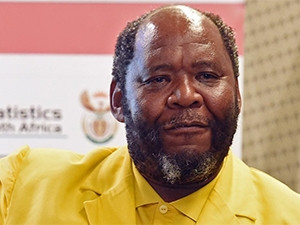
Technology has taken centre stage at the ongoing United Nations World Data Forum in Cape Town.
SA Stats is hosting the first world data forum at the Cape Town International Convention Centre from 15 until 18 January.
The event is an opportunity for thousands of data and statistics experts from around the world to explore innovative ways to apply data and statistics to measure global progress and inform evidence-based policy decisions on the 2030 Agenda for Sustainable Development.
Other issues being examined include the need for open data and how to facilitate data sharing and integration of new data sources into official statistics.
Open data is the idea that some data should be freely available to everyone to use and republish as they wish, without restrictions from copyright, patents or other mechanisms of control. The goals of the open data movement are similar to those of other "open" movements, such as open source, open hardware, open content and open access.
Accurate data
Statistician general Pali Lehohla says SA is honoured to host experts from around the world who will find ways of using technology to capture data more accurately.
"There are increasing new sources of data that are useful and for them to be useful there must be standards," says Lehohla. "The only way statistics can be useful is by engaging actively with the purveyors and politics of policy-making and -makers, academia, geoscience and locational technology, NGOs, technology, finance, media and citizenry."
Florence Broderick, Telefonica's strategic marketing manager, who is attending the forum, says mobile data is playing a big role in reaching the Sustainable Development Goals (SDGs).
"The smartphone has changed our world as we know it, with 79% of people between 18 and 44 having their devices within reach 22 hours a day. This new extension of our hands has become a 'digital echo' of our real behaviour, with thousands of mobile applications accelerating our data generation and providing a wide range of companies with a scary amount of data on who we are, where we go, what we do and why we do it," says Broderick.
She points out that in the era of big data, an innocent online search for some golf clubs turns into a commercial pursuit to convert interest into investment - which has started to cause some alarm among consumers.
"Over the past few years, an increasing number of questions around privacy and the value of our data have come to the forefront of political debate. Cyber attack headlines and aggressive advertising in the top of our minds have led people to become more aware about the negative use of their data, often neglecting the many positive ways in which data is being used around the world."
Broderick says the mainstream media tends to focus on the Internet giants of this world and how they exploit data. However, she notes, telecommunications companies also have access to incredibly insightful data sets. The telcos of this world are increasingly finding ways to have a social impact with the data created by their customers, who spend an average of 145 minutes per day tapping and swiping away, she adds.
"Of course, mobile behaviour varies immensely in different geographies, and the extent of this social impact depends on how developed the country of analysis is. For this reason, projects on big data for social good based on mobile data have tended to focus on developing countries, targeting the alarming problems linked to SDGs one and two - no poverty and zero hunger."
Information availability
Cape Town-based non-governmental organisation African Monitor says it is significant that the first global data forum is taking place in Africa with strong leadership from Stats SA.
It believes SA's hosting of the forum will result in a significant increase in the data available to individuals, governments, civil society, companies and international organisations to plan, monitor and be held accountable for their actions with regards to Sustainable Development Goals.
"For us, the World Data Forum is a platform that should discuss how data and access to information can become available to all citizens, so that they can effectively hold their governments accountable and monitor the implementation of the SDGs," says African Monitor director Namhla Mniki-Mangaliso.
She adds that data access and utilisation has long been the purview of the privileged; where those from wealthier nations can access any information they need at the click of a button.
"This cannot continue if Agenda 2063 and the SDGs are to be achieved. We are working hard to build the capacity of African youth to access data and utilise it to monitor the delivery of commitments made by their governments.
"Our work is greatly hindered by limited access to technology and limited access to official data. Therefore, it is important for us that a forum like this is willing to realistically talk about how African citizens can fully benefit from open data systems and new technologies; and how we can increase data transparency at the local level," Mniki-Mangaliso concludes.
Share